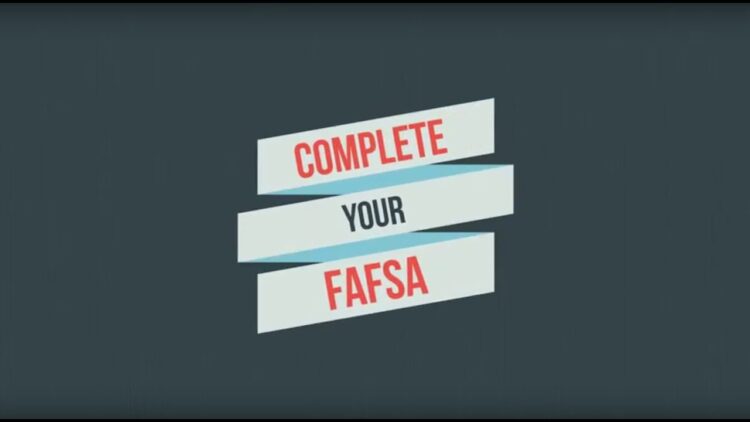Online education has become increasingly popular in recent years, and many students have chosen this path as a way to pursue their educational goals. However, for some students, the cost of pursuing higher education can be a significant financial burden.
Fortunately, there are many financial aid options available to online students to help ease the financial strain. In this article, we will explore various types of financial aid available to online students and provide advice on how to access these resources.
Page Contents
Types of Financial Aid for Online Students:
● Federal Student Aid
Federal student aid is one of the most popular financial aid options available to students, including those who are pursuing online education. The Federal Student Aid program provides students with grants, loans, and work-study programs to help them pay for college. To apply for federal student aid, students must complete the Free Application for Federal Student Aid (FAFSA) form. The FAFSA is used to determine a student’s eligibility for federal student aid based on their financial need and other factors.
● Scholarships

Source: collegeforward.org
Scholarships are another popular form of financial aid for online students. Scholarships are typically awarded based on academic merit, athletic ability, or other achievements. Some scholarships are also awarded based on financial need. Scholarships can be offered by colleges and universities, private organizations, and government agencies. Students can search for scholarships online or check with their college or university to see what scholarship opportunities are available.
● Grants
Grants are similar to scholarships in that they are typically awarded based on financial need or academic merit. However, grants do not have to be repaid, making them a popular option for students who need financial assistance. Grants can be offered by colleges and universities, government agencies, and private organizations.
● Work-Study Programs

Source: slu.edu
Work-study programs are a form of financial aid that allows students to work part-time jobs on or off-campus while they are attending school. Work-study programs are typically awarded based on financial need, and students can earn money to help pay for their education. Work-study programs can be offered by colleges and universities, government agencies, and private organizations.
● Loans
Loans are another option for students who need financial assistance. There are many types of loans available, including federal student loans, private student loans, and personal loans. Federal student loans typically offer lower interest rates and more flexible repayment options than private student loans. However, students should be careful not to borrow more than they can afford to repay.
Tips for Accessing Financial Aid

Source: niche.com
● Start Early
Students should start researching financial aid options as early as possible. The FAFSA form becomes available on October 1st of each year, and students should complete the form as soon as possible to maximize their chances of receiving financial aid.
● Do Your Research
There are many types of financial aid available to online students, and it’s important to research all of your options. Students should check with their college or university, search for scholarships online, and explore government and private grant programs.
● Stay Organized

Source: method.me
Applying for financial aid can be a time-consuming process, so it’s important to stay organized. Students should keep track of deadlines, application requirements, and other important information related to the financial aid process.
● Be Honest
When completing the FAFSA form or other financial aid applications, students should be honest about their financial situation. Providing false information on financial aid applications can result in penalties and loss of financial aid eligibility.
● Seek Help
If students have questions about the financial aid process or need help completing applications, they should seek help from their college or university’s financial aid office or a financial aid advisor.
Understand the Different Types of Financial Aid
Financial aid or Student Loans comes in different forms, and it is essential to understand each type to determine which ones you are eligible for.
- Scholarships: Scholarships are monetary awards that do not need to be repaid. They are usually based on merit, need, or both. Some scholarships are specifically designed for online students, while others are open to all students regardless of the mode of study.
- Grants: Like scholarships, grants are financial awards that do not need to be repaid. However, grants are usually based solely on financial need. The federal government offers several grant programs, such as the Pell Grant, which is available to undergraduate students who demonstrate significant financial need.
- Loans: Loans are borrowed funds that need to be repaid with interest. Online students are generally eligible for the same federal student loan programs as traditional students. Private student loans are also an option, but they usually have higher interest rates and stricter repayment terms.
- Work-Study: Work-study programs allow students to earn money by working part-time jobs on campus or in other approved locations. Online students may be eligible for work-study programs, but the job opportunities may be limited due to the lack of a physical campus.
Complete the FAFSA

Source: youtube.com
The Free Application for Federal Student Aid (FAFSA) is the first step in applying for most types of financial aid. The FAFSA is used to determine your eligibility for federal grants, loans, and work-study programs, as well as some state and institutional aid.
The FAFSA asks for information about your family’s income and assets, as well as your own income and assets if you are not a dependent. It is essential to complete the FAFSA as early as possible, as some aid programs have limited funding.
Research Scholarship Opportunities
Scholarships are a valuable source of financial aid, and there are many scholarships available specifically for online students. Some scholarships are offered by online universities themselves, while others are sponsored by corporations, non-profit organizations, or professional associations.
To find scholarship opportunities, start by researching the websites of online universities you are interested in attending. Also, check websites such as Fastweb and Scholarships.com, which offer searchable databases of scholarships. Finally, consider joining professional associations related to your field of study, as they may offer scholarship opportunities.
Consider Employer Tuition Assistance Programs

Source: matchr.com
Many employers offer tuition assistance programs to their employees. These programs may cover part or all of the cost of tuition and fees for approved courses or degree programs. If you are currently employed, check with your employer to see if they offer a tuition assistance program. Even if your employer does not offer a program, they may be willing to negotiate a tuition reimbursement agreement.
Look for State-Specific Aid Programs
In addition to federal aid programs, some states offer their own financial aid programs to residents. These programs may include grants, scholarships, and loan forgiveness programs. To find out if your state offers any aid programs, check with your state’s higher education agency or department of education.
Consider Private Student Loans as a Last Resort
Private student loans are an option if you need additional funds to pay for your education after exhausting all other forms of financial aid. However, private student loans usually have higher interest rates and stricter repayment
Conclusion
Pursuing higher education can be a significant financial burden for many students. But you can lessen or eliminate this burden through the right financial aids available for you.




